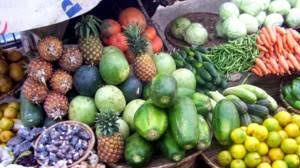The Nigerian Government has launched an initiative, known as” Zero Reject”, in Calabar to stop rejection of Nigeria’s agricultural products and produce in international markets.
The initiative involves training and sensitisation rally for farmers and traders against indiscriminate use of agrochemicals in production, post-harvest handling and storage of agricultural commodities.
The Permanent Secretary, Federal Ministry of Agriculture and Rural Development, Dr Muhammad Bello said that the initiative was due to the rejection of Nigeria’s agricultural products/produce in the international markets.
He said that the practice had rendered “our food unsafe and causing a variety of health hazards and economic loses to our people and country’’.
According to him, this negates the Federal Government’s plan to prioritise agriculture as one of the key sectors in diversifying the economy.
He said: “Our agricultural produce has suffered in the last few years from rejection in the international markets due to poor adherence to standards and maintenance of required quality.
“This is why government launched the ‘Zero Reject’ initiative to help drive adherence and maintenance of good quality standards for our agricultural products/produce.”
Bello, who was represented by Iwara Bassey, FMARD State Coordinator in Calabar, noted that standards had been compromised considerably in the use of agrochemicals, especially in the preservation of produce against damage by pests and spoilage.
He said that government was doing everything to reverse the trend, adding that the training was put together to broaden the knowledge and create further awareness among farmers across Nigeria.
Ruth Agbo, the President, National Association of Nigerian Traders, Women Wing, said the association was collaborating with the ministry in sensitising the farmers and traders across the six geo-political zones on the inititative.
According to her, over 500 farmers representing the six states of South-South zone were being trained and sensitised, and they will in turn go back to their respective states to train other farmers down to the local government areas.
Agbo said it had become imperative to train farmers and traders against the use of agrochemicals because of its prevailing health implications. She urged the participants to take the training serious by listening to different resource persons drawn from key agric sectors.













